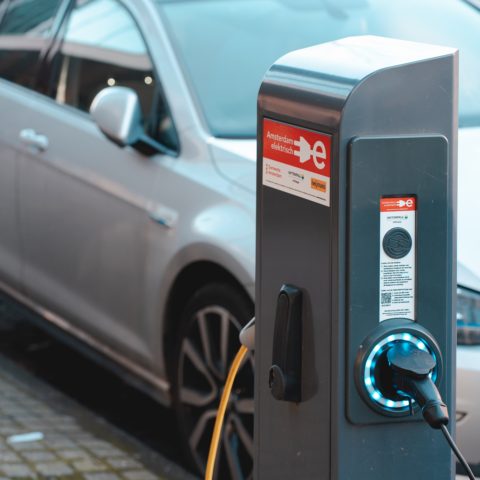By: Charlie Spalding
One of the most fundamental points of contention surrounding fiscal cliff negotiations is the need to raise more revenues and the source from which such revenues could be derived. Democrats suggest higher tax rates on the wealthy, while Republicans suggest elimination of loopholes and deductions. In the search for new revenues, it is particularly interesting to note what ideas politicians have not publicly floated. One such idea is a scheme that taxes corporations based on their carbon emissions into the atmosphere. The idea has come to be known as a carbon tax and, according to a recent study by the Massachusetts Institute of Technology, it could raise nearly $1.5 trillion between 2013 and 2023.
A carbon tax works by implementing an excise tax on the carbon content of fuel sold by manufacturers, producers, and importers. Because research has established the specific carbon content of various fossil fuels, it is easy to determine the amount of carbon dioxide emissions by simply knowing the amount of fossil fuels burned. Coal’s carbon content is the highest of common fossil fuels, with oil and petroleum based fuels in the medium range and natural gas occupying the lighter end of the spectrum. Most scenarios suggest a levy of $20 per ton of carbon emissions, with the rate gradually rising year by year to keep pace with inflation and to remain an effective deterrent. The annual increase, according to M.I.T., would be around 4 percent when adjusted. Since the taxing mechanism is implemented “upstream,” consumers would absorb the new tax through increased prices on goods and services requiring carbon-heavy processes.
Critics of such a plan typically come from the right side of the political spectrum and argue that a carbon tax could lead to job losses and higher utility rates. In addition, such a tax is highly interventionist and has the potential to drastically affect consumer and producer behavior, naturally irking the politically conservative. Further, with not one mention of climate change in the official Republican Party platform, it is easy to understand why a new tax designed to protect the environment has gained little ground.
Advocates of a carbon tax point to the potential revenue that could be generated as both a benefit and a way to address conservative criticisms that claim the tax will lead to unbearably higher prices. The Carbon Tax Center, one of the leading proponents of the tax, argues that the entire program could be revenue neutral through reductions in other areas of the tax code and through dividend checks to consumers, much like the program implemented in Alaska, thus offsetting the higher costs of goods and services. Additionally, the tax would undoubtedly result in utility providers moving to cleaner forms of energy that would be tax-free, like wind and solar power. Likewise, consumers would come to favor goods manufactured in a more environmentally friendly way, not necessarily for the sake of the environment, but rather for the sake of their wallet.
With the backdrop of the fiscal cliff negotiations, many commentators from both sides of the aisle have suggested that now would be an ideal time to consider a carbon tax. The tax would bring more revenue for the Democrats and, if implemented properly, could represent the simplification of the tax code desired by the Republicans. Additionally, the carbon tax has found unlikely allies in Exxon, Shell, and BP, particularly if the tax is combined with a reduction the 35 percent corporate income tax. The tax has the potential to create new energy jobs in industries like solar and wind power. As former Bush speechwriter David Frum points out, the tax would provide some certainty for a still-floundering economy, thereby stimulating economic growth. A recent New York Times article pointed out international initiatives to curtail global warming are unlikely to be reached, and events like Hurricane Sandy and a prolonged drought across the Midwest make negative repercussions of climate change difficult to deny. In this sense, the carbon tax has the potential to be a “win-win-win,” as termed by M.I.T. researchers. The tax would spur economic growth, address the nation’s crippling debt, and mitigate the consequences of climate change.
However, skeptics of the efficacy of a carbon tax argue that American emissions are already decreasing and have a negligible role to play in the continued warming of the atmosphere. By the end of the century, American emissions will be responsible for only 7 percent of anthropogenic climate change, with developing countries and burgeoning populations like China and India accounting for the majority of the increase in temperature. In this way, one of the chief benefits of the tax is negated. Opponents of such a theory claim an American carbon tax will encourage more environmentally friendly activity in other countries, particularly since the tax will apply to imported energy sources. Having implemented a carbon tax in their own country, American officials would also have more leverage in encouraging sustainable activities on the part of developing nations around the world.
The confluence of critical periods in America’s environmental and financial future suggests a need for an innovative solution, yet the carbon tax has had only mentions of political impossibility and dismissal during negotiations thus far. Undoubtedly, the implementation of a carbon tax would be a complex process with many details to be ironed out. However, the omission of the carbon tax from the conversation on Capitol Hill is discouraging, regardless of whether one supports the tax or not. Without the inclusion of carbon taxes in the conversation, all options aren’t truly on the table.

